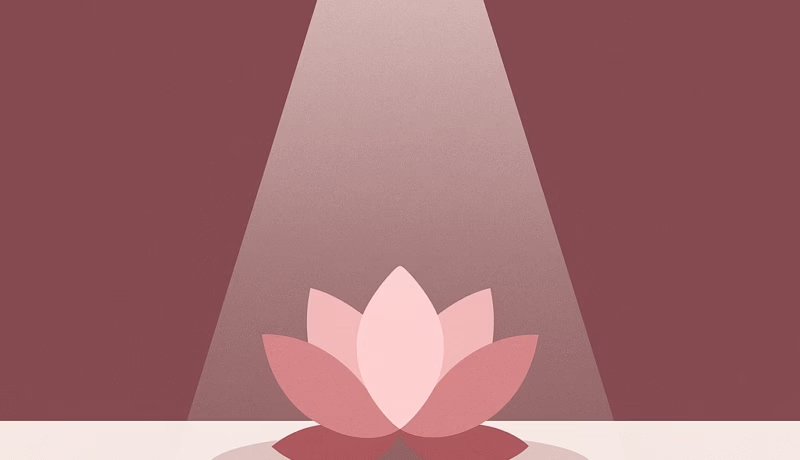Table Of Content
- 1. Introduction: You Are What You Notice
- 2. The Science of Attention
- 3. The Spiritual View: Energy Follows Attention
- 4. The Attention-Economy Trap
- 5. The 3 Types of Attention
- 6. How Attention Shapes Who You Become
- 7. Training the Currency of Attention
- 8. Attention as a Spiritual Practice
- 9. Closing Reflection
- Related Posts
The Invisible Currency: How Attention Shapes Reality
1. Introduction: You Are What You Notice
If money is the currency of the external world, attention is the currency of your inner world.
Where you spend it determines the shape of your reality, the quality of your relationships, and even the health of your mind.
In a time when algorithms compete for every spare second, understanding the mechanics of attention is not just a life skill — it’s a survival skill.
2. The Science of Attention
Modern neuroscience reveals that the brain processes an overwhelming 11 million bits of sensory information per second — but consciously, we only register around 40 bits.
That means reality, as you experience it, is not the whole picture — it’s the filtered, highly selective result of what you pay attention to.
Key point:
Change your focus, and you change your reality — not metaphorically, but literally, in the way your brain maps the world.
3. The Spiritual View: Energy Follows Attention
Ancient traditions have been saying this for millennia:
Yoga calls it pratyahara — the conscious withdrawal of senses from distraction.
Buddhism speaks of right mindfulness — the ability to place attention where it serves awakening.
The Upanishads remind us that “As is your thought, so is your world.”
Spiritual teachers often describe attention as life-force in motion.
When you pour it into anger, you strengthen anger. When you pour it into gratitude, you strengthen peace.
4. The Attention-Economy Trap
The modern attention economy works on a simple principle:
Your focus is more valuable than your money.
Once a platform has your attention, your money will follow.
That’s why:
Notifications are red (the color most likely to trigger urgency).
News headlines are written to provoke outrage (outrage = longer engagement).
Infinite scroll exists (to bypass your brain’s natural “stop” signals).
If you don’t actively decide where to put your attention, someone else already has.
5. The 3 Types of Attention
Scattered Attention — Constantly switching between tasks, never fully present. Leads to exhaustion and shallow thinking.
Focused Attention — Fully absorbed in a single task, often producing flow states.
Expansive Attention — A relaxed, open awareness that includes the present moment without fixation. This is the attention of meditation and insight.
6. How Attention Shapes Who You Become
Every second you notice something, your brain is reinforcing neural pathways.
Focus on fear → your brain becomes better at spotting threats.
Focus on beauty → your brain becomes better at spotting joy.
Focus on problems → your reality fills with obstacles.
Focus on possibilities → your reality fills with opportunities.
The saying “neurons that fire together, wire together” isn’t poetry — it’s biology.
7. Training the Currency of Attention
a) Daily Mindful Moments
Set aside 2–3 moments a day to pause, take a breath, and notice: What has my attention right now?
b) The Single-Task Rule
Choose one activity to do without multitasking — eating, listening, walking.
c) The 24-Hour News Fast
Once a week, avoid news and social media entirely. Notice how your inner tone shifts.
d) Gratitude Scanning
Before bed, recall 3 things that received your genuine appreciation today.
8. Attention as a Spiritual Practice
When you direct attention inward — toward the one who is aware — a shift happens.
At first, you may see thoughts, emotions, body sensations.
If you keep looking, there’s a point where the one who notices cannot be noticed — pure awareness remains.
This is where many mystical traditions point when they say, “You are not your mind.”
9. Closing Reflection
Your life is the sum of what you’ve paid attention to.
In this very moment, you’re trading your most precious currency — not money, but awareness.
The question isn’t “Do I have attention?” — the question is “Who or what has it right now?”
If you reclaim it, even for a few minutes a day, you begin to reclaim yourself.
References:
William James — The Principles of Psychology
Kabat-Zinn, Jon — Wherever You Go, There You Are
Ricard, Matthieu — Happiness: A Guide to Developing Life’s Most Important Skill
Baumeister, Roy & Tierney, John — Willpower: Rediscovering the Greatest Human Strength
Katha Upanishad — “The Self is attained by directing the senses inward.”
